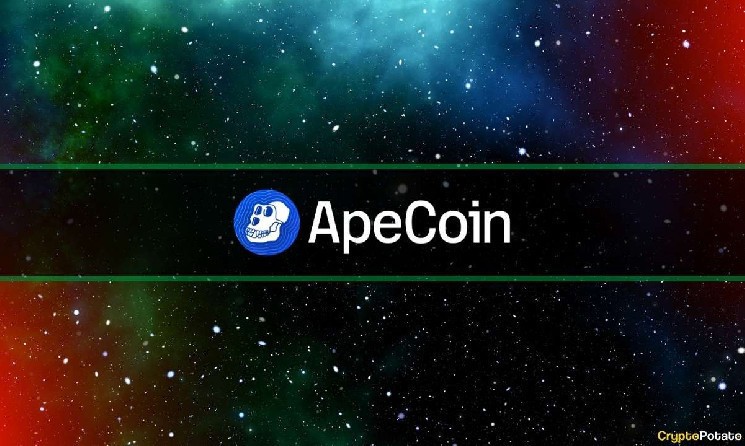ApeCoin Geo-Blocks North American Users From Staking

North American crypto users will be restricted from staking ApeCoin, the ERC-20 metaverse token issued by Yuga Labs, according to a company statement on Wednesday.
The ApeCoin DAO claimed the “current regulatory environment” left it with “no good alternative” but to selectively geo-block the service in numerous areas, including Canada and the United States.
Yuga Bends to Regulators
In its latest project update, ApeCoin offered details about the upcoming launch of ApeStake.io. The site goes live on September 5th, after which the associated smart contract will be funded within two days. Stakers may begin accruing rewards one week after launch on December 12th.
However, as detailed at the bottom of the page, staking ApeCoin may prove far more difficult for some users than others, depending on their location. Countries and regions including the United States, Canada, Syria, Iran, Cuba, Russia, Crimea, Donetsk, and Luhansk will all be geo-blocked from staking.
“We are aware that geoblocking some users in North America is inconvenient for many members of the Apecoin community,” said Yuga. “Unfortunately, in today’s regulatory environment, we had no good alternative.”
“Staking” in crypto often refers to locking up one’s cryptocurrency to secure a given blockchain network, while being rewarded with network fees and subsidies. It may also refer to any service requiring someone to lock up their digital coins in return for periodic yield.
Such a product puts ApeCoin in the crosshairs of U.S. securities regulators, who have been clamping down on crypto lenders providing similar services throughout the year. For example, a California watchdog ordered Nexo to stop offering interest-bearing crypto accounts in September, deeming them unregistered securities.
The Securities and Exchange Commission (SEC) feels much the same: it stopped Coinbase from issuing a lending product last year and has even suggested that “proof of stake” based cryptocurrencies could more closely resemble securities.
The federal agency began investigating Yuga Labs for potentially violating securities laws last month. It suspected that certain NFTs, as well as Apecoin, may resemble stocks or other securities.
A Potential Loophole?
While ApeCoin may prevent front-end access to its staking site for certain regions, the organization noted that smart contracts are technically accessible by anyone.
“We want to remind the community that one of the benefits of decentralized finance is that anybody can interact with a smart contract, or develop clients and interfaces that allow users to interact with smart contracts,” said ApeCoin over Twitter on Wednesday.
ApeCoin added that third-party companies have already developed alternative interfaces for interacting with the contract, beyond the first-party site.






 Bitcoin
Bitcoin  Ethereum
Ethereum  Tether
Tether  USDC
USDC  TRON
TRON  Dogecoin
Dogecoin  Cardano
Cardano  Monero
Monero  Bitcoin Cash
Bitcoin Cash  Chainlink
Chainlink  LEO Token
LEO Token  Stellar
Stellar  Zcash
Zcash  Litecoin
Litecoin  Hedera
Hedera  Dai
Dai  Cronos
Cronos  OKB
OKB  Tether Gold
Tether Gold  Ethereum Classic
Ethereum Classic  KuCoin
KuCoin  Gate
Gate  Cosmos Hub
Cosmos Hub  Algorand
Algorand  VeChain
VeChain  Dash
Dash  Stacks
Stacks  Tezos
Tezos  TrueUSD
TrueUSD  Decred
Decred  IOTA
IOTA  Theta Network
Theta Network  Basic Attention
Basic Attention  NEO
NEO  Synthetix
Synthetix  Qtum
Qtum  0x Protocol
0x Protocol  Ravencoin
Ravencoin  DigiByte
DigiByte  Zilliqa
Zilliqa  Nano
Nano  Siacoin
Siacoin  Numeraire
Numeraire  Waves
Waves  Ontology
Ontology  Status
Status  Enjin Coin
Enjin Coin  BUSD
BUSD  Hive
Hive  Pax Dollar
Pax Dollar  Lisk
Lisk  Steem
Steem  Huobi
Huobi  OMG Network
OMG Network  Bitcoin Gold
Bitcoin Gold  NEM
NEM  Augur
Augur